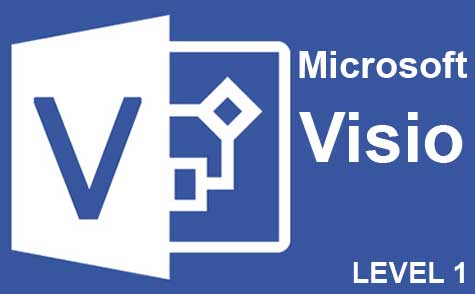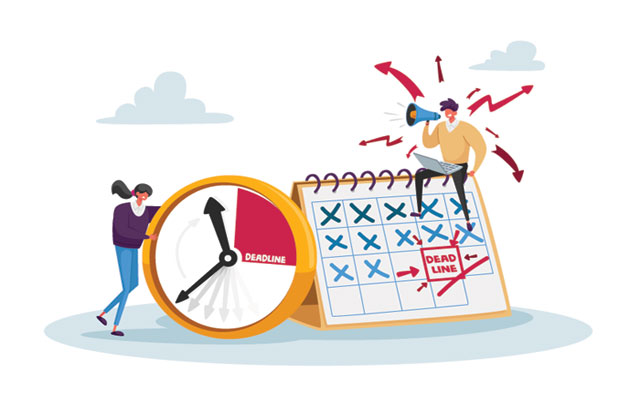Online Class: Landlord 101 — Managing Rental Properties

CEU Certificate*
-
12Lessons
-
25Exams &
Assignments -
7,534Students
have taken this course -
11Hours
average time -
1.1CEUs
Course Description
Mastering the Art of Property Management: Your Blueprint for Success
Embarking on the journey to become a landlord can be both exhilarating and daunting. With the potential to garner substantial financial rewards and personal fulfillment, it’s no wonder many are drawn to this lucrative profession. Yet, the road to successful property management is riddled with challenges. But fear not, for our comprehensive online course is meticulously designed to guide you every step of the way.
Course Outline:
-
Self-Assessment: Dive deep into the intricacies of property management. Determine if this career aligns with your passion and goals, and familiarize yourself with the commitment it demands.
-
Exploring Property Types: Unveil the merits and challenges of both commercial and residential properties. Understand the diverse spectrum of tenants you'll be catering to.
-
Strategic Property Acquisition: The art of acquisition goes beyond just buying property. Grasp the nuances of evaluating potential assets and master the skill of making strategic offers.
-
Know Your Rights (and Responsibilities): Delve into the vast realm of property laws, regulations, and the vital responsibilities that come with owning a property.
-
Financial Mastery: Navigate the financial maze with confidence. Learn the secrets to determining optimal rental prices, ensuring a consistent revenue stream.
-
Tenant Magnetism: Uncover proven strategies to attract the ideal tenants for your property, ensuring a harmonious landlord-tenant relationship.
-
Navigating Tenant Dynamics: A deep dive into managing relationships, including identifying red flags and steering clear of problematic tenants.
-
Tackling Challenges: From addressing tenant grievances to understanding the complex eviction process, arm yourself with the knowledge to manage conflicts seamlessly.
-
The Power of the Lease: Discover the components of a foolproof lease agreement. Equip yourself with effective dispute resolution techniques to tackle any unforeseen challenges.
-
Maintenance Mastery: Understand the multifaceted world of property upkeep, from routine checks to emergency repairs. Learn to anticipate common issues and tackle them proactively.
-
Financing Your Dream: Whether you're a newbie or a seasoned investor, explore a plethora of financing options tailored to meet your acquisition needs.
-
Sealing the Deal: Whether it's time to diversify or consolidate, grasp the intricacies of selling properties, ensuring you exit with maximum returns.
This course isn’t just a tutorial; it’s a holistic journey that transforms you into a savvy property mogul. From aspiring landlords to seasoned property managers looking to refine their skills, our course offers invaluable insights. Equip yourself with the tools, knowledge, and confidence to navigate the dynamic world of property management and soar to unprecedented heights!
Course Motivation
A Career in Income Property Management
Even during strong economic periods, maintaining a portfolio of successful investments takes time, energy, and money. Owning an income property typically means being available at any time in case of emergency. Having the right personality, and perspectives, will determine whether a property owner succeeds or fails at holding and managing properties. Patience, responsiveness, and communication skills are hallmarks of a solid real estate management strategy.
Becoming a property owner involves six core disciplines requiring skills and knowledge.
|
Sales and Marketing |
Ability to advertise and market to prospective tenants. Ability to sell property effectively. |
|
Money Management |
Able to understand and manage expenses. Knowing how and when to increase income. |
|
Building Structure and Carpentry
|
Understand basic carpentry, electrical, plumbing and climate control systems. Understand property specifics, landscaping and building inspection requirements. |
|
Communication |
Ability to communicate with tenants, municipal officials, maintenance, and repair personnel. |
|
Negotiation |
Able to negotiate price, terms, conditions, and other facets. Able to deal with tenants and property sellers. |
|
Regulatory |
Knowledge of building code, zoning, and other restrictions. Understand permitting requirements and process. |
Once you determine that you have the ability to become a property owner, it will be helpful for you to understand what issues are involved in property management. As you can see by the table above, there are several disciplines that intersect when you own and manage real estate. Once you understand each discipline, and design a strategy to handle elements within each discipline, running a property will be easier. Let us look at some basics of income property management.
- Finding the right property. Searching for solid properties with good rental potential; what to look for during inspection; how to analyze income and expenses.
- Buying the property. How to negotiate price, terms, and other considerations in your favor; what type of mortgage to use, and when to refinance; when to use creative financing to purchase the property.
- Attracting and retaining tenants. How to bring in tenants, keep them happy and generate profit from them; knowing what channels to use to attract the best tenants; how and when to increase rental income.
- Resolving building and property issues. Handling repairs, weather damage, code violations, equipment replacement, and updates; dealing with neighbors and community issues; complying with regulations and requirements.
- Handling tenant issues. How to deal with delinquent payments, damaged property, community violations (loud noise, unsafe conditions), occupancy violations, and other lease issues, handling special requests.
- Dealing with vacancies. Limiting empty space; promoting rental openings; preventing vacancies by creating long term relationships.
- Financial activities. Paying expenses such as repairs, maintenance, updating, and waste removal; paying debts on the property; collecting rental payments on time.
- Dealing with contracts. Creating effective agreements for purchases and leases; handling clause violations directly (minor offenses) or through litigation (major offenses); and ending a contract.
- Complying with laws. Meeting structural codes (fire, safety, others); operating according to property owner and tenant laws; meeting housing regulations.
- Keeping good records. Performing financial accounting; documenting activities; maintaining complete, accurate, and updated records.
Setting Goals
The next step in your journey to becoming a successful income property manager is to determine your personal goals and your financial goals. Your personal goals may include how many and what types of properties that you want to manage, how much time you will be involved in this effort, and where the properties will be located. Financial goals should include income and expense objectives, return on investment (ROI), short term (3 to 5 years), and long term (10 to 30 years) net worth calculations. The goals that you set should be firm but flexible; they will become a map for you to follow, but changing circumstances may force you to alter your goals occasionally.
To ensure that your goals as a property management professional are solid, they should follow the well known acronym S.M.A.R.T.
Specific. Use actual dates, dollar figures, locations, resources, and other criteria that will make up your goals. Specific goals provide focus and clearly define your efforts as you proceed with this endeavor. If you simply indicate general objectives such as, "You would like to earn more money." your goals will be difficult to manage and to measure.
Measurable. To track your progress, use measurements (such as dollar amounts) that can be easily compared and analyzed. Establish monthly, quarterly, and annual figures for each of your objectives. Concrete data allow you to stay on track, push to reach target dates, and feel a sense of achievement when the goals are reached.
Attainable (Achievable). Establish goals that can be reached by effort, by committing yourself to improving skills, attitude, financial capacity, abilities, and knowledge. As you achieve and experience more, your goals will seem closer and opportunities that you once ignored may be realized.
Realistic. Determine what you want to achieve by setting reasonable benchmarks. Goals are not dreams; they should be rational, given your financial status, education, experience, attitudes, and abilities. If you want to stretch yourself, establish two sets of goals, one set that can easily be reached with appropriate work and another set that might be possible with a lot of hard work.
Timely (Time Sensitive). When setting goals, connect achievement with a timetable. By establishing goal dates, you will create a sense of urgency. This sense of urgency can drive you to achieving your goals; without it, you may not push yourself enough and you may become disappointed or lose focus. (T can also stand for tangible.) Have goal achievement affect your senses. By rewarding yourself with a sensory experience, such as an expensive meal or new clothing, you "feel" goal achievement through a direct physical connection.
- Completely Online
- Self-Paced
- Printable Lessons
- Full HD Video

- 6 Months to Complete
- 24/7 Availability
- Start Anytime
- PC & Mac Compatible
- Android & iOS Friendly
- Accredited CEUs

Course Lessons
Lesson 1. A Career in Income Property Management
 Lesson 1 Video
Lesson 1 Video Lesson discussions: Rental Property; Reasons for Taking this Course
Lesson discussions: Rental Property; Reasons for Taking this Course Complete: Lesson 1 Assignment
Complete: Lesson 1 Assignment Complete Assignment: An Introduction
Complete Assignment: An Introduction Assessment: Lesson 1 Exam
Assessment: Lesson 1 Exam
Lesson 2. Property Types
 Lesson 2 Video
Lesson 2 Video Complete: Lesson 2 Assignment
Complete: Lesson 2 Assignment Assessment: Lesson 2 Exam
Assessment: Lesson 2 Exam
Lesson 3. Buying Your Property
 Lesson 3 Video
Lesson 3 Video Complete: Lesson 3 Assignment
Complete: Lesson 3 Assignment Assessment: Lesson 3 Exam
Assessment: Lesson 3 Exam
Lesson 4. Rights and Responsibilities
 Lesson 4 Video
Lesson 4 Video Complete: Lesson 4 Assignment
Complete: Lesson 4 Assignment Assessment: Lesson 4 Exam
Assessment: Lesson 4 Exam
Lesson 5. Financial Considerations
 Lesson 5 Video
Lesson 5 Video Complete: Lesson 5 Assignment
Complete: Lesson 5 Assignment Assessment: Lesson 5 Exam
Assessment: Lesson 5 Exam
Lesson 6. Tenants
 Lesson 6 Video
Lesson 6 Video Lesson discussions: Tenant Qualities
Lesson discussions: Tenant Qualities Complete: Lesson 6 Assignment
Complete: Lesson 6 Assignment Assessment: Lesson 6 Exam
Assessment: Lesson 6 Exam
Lesson 7. Dealing with Tenants
 Lesson 7 Video
Lesson 7 Video Assessment: Lesson 7 Exam
Assessment: Lesson 7 Exam
Lesson 8. Tenant Issues
 Lesson 8 Video
Lesson 8 Video Lesson discussions: Tenant Issues
Lesson discussions: Tenant Issues Complete: Lesson 8 Assignment
Complete: Lesson 8 Assignment Assessment: Lesson 8 Exam
Assessment: Lesson 8 Exam
Lesson 9. Creating a Lease
 Lesson 9 Video
Lesson 9 Video Complete: Lesson 9 Assignment
Complete: Lesson 9 Assignment Assessment: Lesson 9 Exam
Assessment: Lesson 9 Exam
Lesson 10. Property Maintenance
 Lesson 10 Video
Lesson 10 Video Complete: Lesson 10 Assignment
Complete: Lesson 10 Assignment Assessment: Lesson 10 Exam
Assessment: Lesson 10 Exam
Lesson 11. Financing
 Lesson 11 Video
Lesson 11 Video Complete: Lesson 11 Assignment
Complete: Lesson 11 Assignment Assessment: Lesson 11 Exam
Assessment: Lesson 11 Exam
Lesson 12. Selling Your Property
 Lesson 12 Video
Lesson 12 Video Lesson discussions: Let us know what you think of this course; Program Evaluation Follow-up Survey (End of Course); Course Comments
Lesson discussions: Let us know what you think of this course; Program Evaluation Follow-up Survey (End of Course); Course Comments Complete: Lesson 12 Assignment
Complete: Lesson 12 Assignment Assessment: Lesson 12 Exam
Assessment: Lesson 12 Exam Assessment: The Final Exam
Assessment: The Final Exam
Learning Outcomes
- Summarize career opportunities in income property management.
- Define property types.
- Summarize buying your property.
- Describe rights and responsibilities.
- Summarize financial considerations.
- Define tenants and what to look for in a tenant.
- Describe dealing with tenants.
- Summarize common tenant issues and how to resolve them.
- Create a lease.
- Describe property maintenance responsibilities.
- Determine when to sell the property.
- Demonstrate mastery of lesson content at levels of 70% or higher.
Additional Course Information

- Document Your Lifelong Learning Achievements
- Earn an Official Certificate Documenting Course Hours and CEUs
- Verify Your Certificate with a Unique Serial Number Online
- View and Share Your Certificate Online or Download/Print as PDF
- Display Your Certificate on Your Resume and Promote Your Achievements Using Social Media

Choose Your Subscription Plan
No Certificate / No CEUs
This course only
| Includes certificate | X |
| Includes CEUs | X |
| Self-paced |

|
| Instructor support |

|
| Time to complete | 6 months |
| No. of courses | 1 course |
Certificate & CEUs
This course only
| Includes certificate |

|
| Includes CEUs |

|
| Self-paced |

|
| Instructor support |

|
| Time to complete | 6 months |
| No. of courses | 1 course |
Certificates & CEUs
Includes all 600+ courses
| Includes certificate |

|
| Includes CEUs |

|
| Self-paced |

|
| Instructor support |

|
| Time to complete | 12 Months |
| No. of courses | 600+ |
Certificates & CEUs
Includes all 600+ courses
| Includes certificate |

|
| Includes CEUs |

|
| Self-paced |

|
| Instructor support |

|
| Time to complete | 24 Months |
| No. of courses | 600+ |
Student Testimonials
- "It was extremely helpful and I am glad I took this course. I learned a lot of information and I needed it all to understand how to pursue property management successfully. As far as the videos--those helped also because I could play the audio, take my notes, and still listen. I'll be more than happy to recommend this course to anyone." -- Kelton B.
- "The course was very thorough and offered a great opportunity to learn how to be successful at property management." -- Nasheika M.
- "Loved the course! It was on my time, I did not feel rushed or pressured. The teacher was quick with grading my assignments and tests. I look forward to looking at other online classes and taking them at UniversalClass." -- Candace W.
- "This is a very helpful resource for me and it has really expanded my scope of income property management. The course layout and lesson content are excellent. Thanks." -- Nurudeen I.
- "I am applying and seeking multi-family homes through NACA program and they required that I take a landlord class with certification. This course was very helpful. I am so glad I took this course." -- Margret R.
- "I would highly recommend this course to anyone who decides to be a property manager or become a landlord. Very informative and hands on." -- Tawana B.
- "This is one of my favorite courses I've taken so far! This landlord certificate is a great feather in the cap for my resume. Thank you!" -- Simon E.
- "The course was well structured and the content in all 12 lessons was extremely helpful. The instructor is very knowledgeable with the topic." -- Iyeika M.
- "Course was extremely helpful in expanding my knowledge base." -- Kenya C.
- "Very much helpful and knowledgeable in every aspect." -- Oscar L.
Related Courses
-
 32 hours
3.2 CEUs
Economics: Complete Edition
+ More Info
32 hours
3.2 CEUs
Economics: Complete Edition
+ More Info
-
 9 hours
0.9 CEUs
Microsoft Project Level 1
+ More Info
9 hours
0.9 CEUs
Microsoft Project Level 1
+ More Info
-
 5 hours
0.5 CEUs
Project Management 101
+ More Info
5 hours
0.5 CEUs
Project Management 101
+ More Info
-
 11 hours
1.1 CEUs
Landlord 101: Managing Rental Properties
+ More Info
11 hours
1.1 CEUs
Landlord 101: Managing Rental Properties
+ More Info
-
 4 hours
0.4 CEUs
Slack
+ More Info
4 hours
0.4 CEUs
Slack
+ More Info
-
 6 hours
0.6 CEUs
Goal Setting for Business
+ More Info
6 hours
0.6 CEUs
Goal Setting for Business
+ More Info
-
 8 hours
0.8 CEUs
Strategic Planning
+ More Info
8 hours
0.8 CEUs
Strategic Planning
+ More Info
-
 5 hours
0.5 CEUs
The Art of Setting Goals
+ More Info
5 hours
0.5 CEUs
The Art of Setting Goals
+ More Info
-
 5 hours
0.5 CEUs
SalesForce 101
+ More Info
5 hours
0.5 CEUs
SalesForce 101
+ More Info
-
 5 hours
0.5 CEUs
Habits of Millionaires
+ More Info
5 hours
0.5 CEUs
Habits of Millionaires
+ More Info
-
 7 hours
0.7 CEUs
Microsoft Visio Level 1
+ More Info
7 hours
0.7 CEUs
Microsoft Visio Level 1
+ More Info
-
 7 hours
0.7 CEUs
Time Management 101
+ More Info
7 hours
0.7 CEUs
Time Management 101
+ More Info
-
 4 hours
0.4 CEUs
Purchasing and Vendor Management 101
+ More Info
4 hours
0.4 CEUs
Purchasing and Vendor Management 101
+ More Info
-
 8 hours
0.8 CEUs
Payroll Management 101
+ More Info
8 hours
0.8 CEUs
Payroll Management 101
+ More Info
-
 6 hours
0.6 CEUs
Debt Reduction
+ More Info
6 hours
0.6 CEUs
Debt Reduction
+ More Info
-
 5 hours
0.5 CEUs
Personal Finance 101: How to Manage Your Money
+ More Info
5 hours
0.5 CEUs
Personal Finance 101: How to Manage Your Money
+ More Info
-
 5 hours
0.5 CEUs
Home Business
+ More Info
5 hours
0.5 CEUs
Home Business
+ More Info
-
 5 hours
0.5 CEUs
Running Effective Meetings
+ More Info
5 hours
0.5 CEUs
Running Effective Meetings
+ More Info
-
 5 hours
0.5 CEUs
Team Building 101
+ More Info
5 hours
0.5 CEUs
Team Building 101
+ More Info
-
 5 hours
0.5 CEUs
Operations Management 101
+ More Info
5 hours
0.5 CEUs
Operations Management 101
+ More Info
-
 7 hours
0.7 CEUs
Retirement Planning
+ More Info
7 hours
0.7 CEUs
Retirement Planning
+ More Info
-
 3 hours
0.3 CEUs
Business Credit 101
+ More Info
3 hours
0.3 CEUs
Business Credit 101
+ More Info
-
 8 hours
0.8 CEUs
Investing 201: Intro to Commodity, Options, and Futures Markets
+ More Info
8 hours
0.8 CEUs
Investing 201: Intro to Commodity, Options, and Futures Markets
+ More Info
-
 32 hours
3.2 CEUs
Accounting & Bookkeeping 101 for Everyone
+ More Info
32 hours
3.2 CEUs
Accounting & Bookkeeping 101 for Everyone
+ More Info
-
 7 hours
0.7 CEUs
Understanding Financial Statements
+ More Info
7 hours
0.7 CEUs
Understanding Financial Statements
+ More Info
-
 6 hours
0.6 CEUs
Business Branding 101
+ More Info
6 hours
0.6 CEUs
Business Branding 101
+ More Info
-
 7 hours
0.7 CEUs
Financial Analysis 101: Planning and Control
+ More Info
7 hours
0.7 CEUs
Financial Analysis 101: Planning and Control
+ More Info
-
 5 hours
0.5 CEUs
Managerial Accounting 101
+ More Info
5 hours
0.5 CEUs
Managerial Accounting 101
+ More Info
-
 4 hours
0.4 CEUs
Business Budgeting 101: How to Plan, Save, and Manage
+ More Info
4 hours
0.4 CEUs
Business Budgeting 101: How to Plan, Save, and Manage
+ More Info
-
 7 hours
0.7 CEUs
Estate Planning
+ More Info
7 hours
0.7 CEUs
Estate Planning
+ More Info
-
 5 hours
0.5 CEUs
Small Business Guide
+ More Info
5 hours
0.5 CEUs
Small Business Guide
+ More Info









